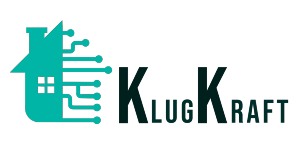Pool automation involves the integration of smart technology and automation features to control and manage various aspects of a swimming pool, including filtration, heating, lighting, and chemical balance. It aims to simplify pool maintenance, enhance energy efficiency, improve water quality, and increase convenience for pool owners. Here’s an overview of pool automation:
- Automated Filtration Systems: Pool automation systems often include automated filtration systems that regulate the filtration process based on preset schedules, water quality parameters, or environmental conditions. These systems can adjust pump speed, filter cycles, and backwashing operations to ensure optimal water circulation and filtration efficiency while minimizing energy consumption.
- Smart Heating Systems: Pool automation systems may incorporate smart heating systems that automatically control pool temperature based on user preferences and weather conditions. Users can set desired temperature settings and schedules, and the system will adjust heating operations accordingly to maintain consistent water temperatures. Smart heating systems can also be integrated with weather forecasts to optimize energy usage and reduce heating costs.
- Chemical Management Systems: Pool automation systems include chemical management systems that monitor and regulate the chemical balance of pool water. These systems can automatically dispense chlorine, pH adjusters, and other chemicals as needed to maintain proper water chemistry and sanitation levels. Automated chemical management systems help prevent algae growth, bacteria buildup, and waterborne illnesses while reducing the need for manual testing and chemical dosing.
- Remote Control and Monitoring: Pool automation systems offer remote control and monitoring capabilities, allowing users to manage their pools from anywhere using smartphones, tablets, or computers. Users can adjust settings, monitor water temperature, chemical levels, and equipment status, and receive alerts and notifications in case of maintenance issues or abnormal conditions. Remote control and monitoring enhance convenience and peace of mind for pool owners.
- LED Lighting Automation: Pool automation systems may include LED lighting automation features that allow users to control pool and landscape lighting for aesthetic enhancement and safety. LED lights can be programmed to change colors, dim, or turn on/off automatically at specific times or in response to user preferences, events, or environmental conditions. LED lighting automation adds ambiance to pool areas and improves visibility for nighttime swimming.
- Water Features and Fountain Automation: Pool automation systems can control water features and fountains to create dynamic and visually appealing aquatic environments. Users can program waterfalls, jets, bubblers, and other water features to operate on schedules or in coordination with lighting and other pool elements. Water feature automation enhances the overall aesthetic and enjoyment of the pool area.
- Integration with Weather Data: Pool automation systems can integrate with weather data services to adjust pool operations based on current weather conditions and forecasts. For example, the system can delay filtration or heating cycles during inclement weather to conserve energy and optimize pool maintenance. Integration with weather data ensures that pool operations are aligned with environmental conditions for maximum efficiency and effectiveness.
- Energy Efficiency and Cost Savings: Pool automation systems are designed to improve energy efficiency and reduce operating costs by optimizing equipment operation and resource usage. By automating filtration, heating, lighting, and chemical management processes, pool automation systems minimize energy consumption, reduce water waste, and extend the lifespan of pool equipment. Energy-efficient pool automation helps lower utility bills and minimize environmental impact.
Overall, pool automation offers numerous benefits, including simplified maintenance, enhanced convenience, improved water quality, and energy efficiency. By leveraging smart technology and automation features, pool owners can enjoy a clean, comfortable, and enjoyable swimming experience while minimizing effort and costs associated with pool maintenance.

